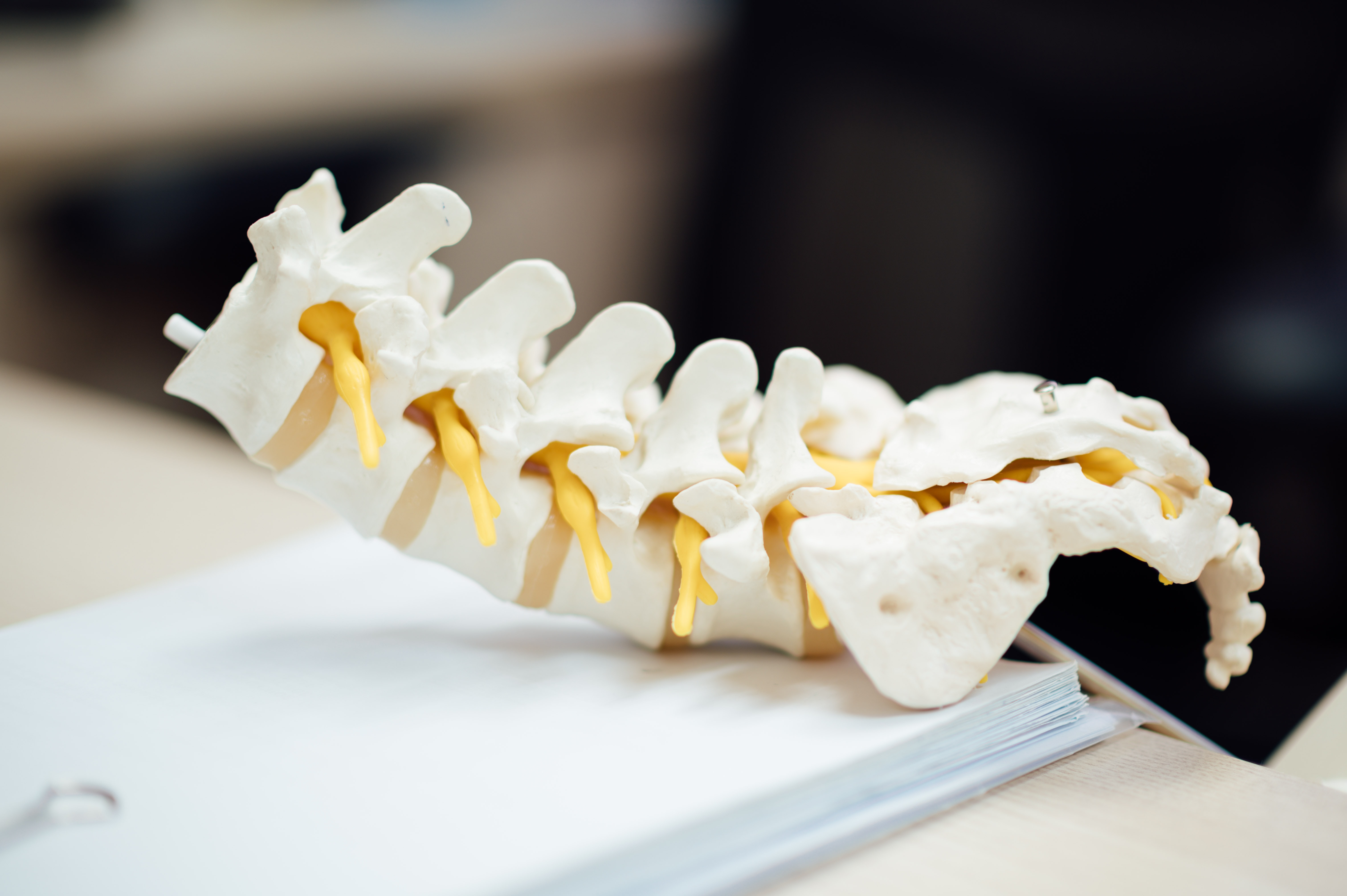What is scoliosis?
Scoliosis is a particular postural dysfunction where the spine twists and curves to one side. It is often defined as spinal curvature in the “coronal” (frontal) plane. But, while the degree of curvature is measured on the coronal plane, scoliosis is a more complex, three-dimensional challenge for the body. At our clinic, we find physiotherapy for scoliosis can support management of this condition.
The natural curves in a spine work to position the head over the pelvis. They act as shock absorbers to distribute mechanical stress during movement. Scoliosis distorts those natural curves and can cause pain in muscles and ligaments, as the body bears an unbalanced weight. Nerves can become squashed or stretched, and joints may be worn or inflamed.
The condition can affect people of any age, from babies to adults, but most often starts in children aged 10 to 15.
Does physiotherapy help with scoliosis?
While someone with scoliosis should be under the care of a consultant who specialises in spinal conditions, a physiotherapist can support management of any associated pain and discomfort as well as support better posture and flexibility. There is evidence that physiotherapy exercises have beneficial effects on patients with idiopathic scoliosis (no known cause), as part of a multidisciplinary team.*
A bespoke therapeutic programme created by a physiotherapist may include deep breathing exercises, shoulder exercises, leg exercises, postural exercises and support with general mobility.
Breathing exercises**, combined with thoracic mobilisations are an important aspect of physiotherapy, since the spinal curve can create pressure on airways and lungs. Postural exercises can correct posture as well as reduce secondary muscle imbalance and related pain.
In addition, there is a psychosocial aspect to scoliosis. Those with the condition may suffer from insomnia, depression, anxiety and stress, and daytime sleepiness. These additional elements need to be assessed and addressed for overall wellbeing.
An integrated approach to scoliosis
Our qualified and chartered physiotherapist, Annemette Jepson has a particular focus on musculoskeletal issues and alignment. She works to restore the body’s balance to avoid restricted and painful joints, muscles or movement.
Annemette also has a keen personal interest in psychology. Her work addresses the whole person, recognising the connections between physical symptoms and emotional wellbeing. She uses her physiotherapy practice and skills to guide people towards better wellbeing, physical and emotional, on a daily basis.
You can book an appointment with Annemette at our Cambridgeshire clinic.
[*] https://www.ncbi.nlm.nih.gov/pmc/articles/PMC5198985/
[**] https://www.physio-pedia.com/Respiratory_Muscle_Training
Photo by CHUTTERSNAP on Unsplash

